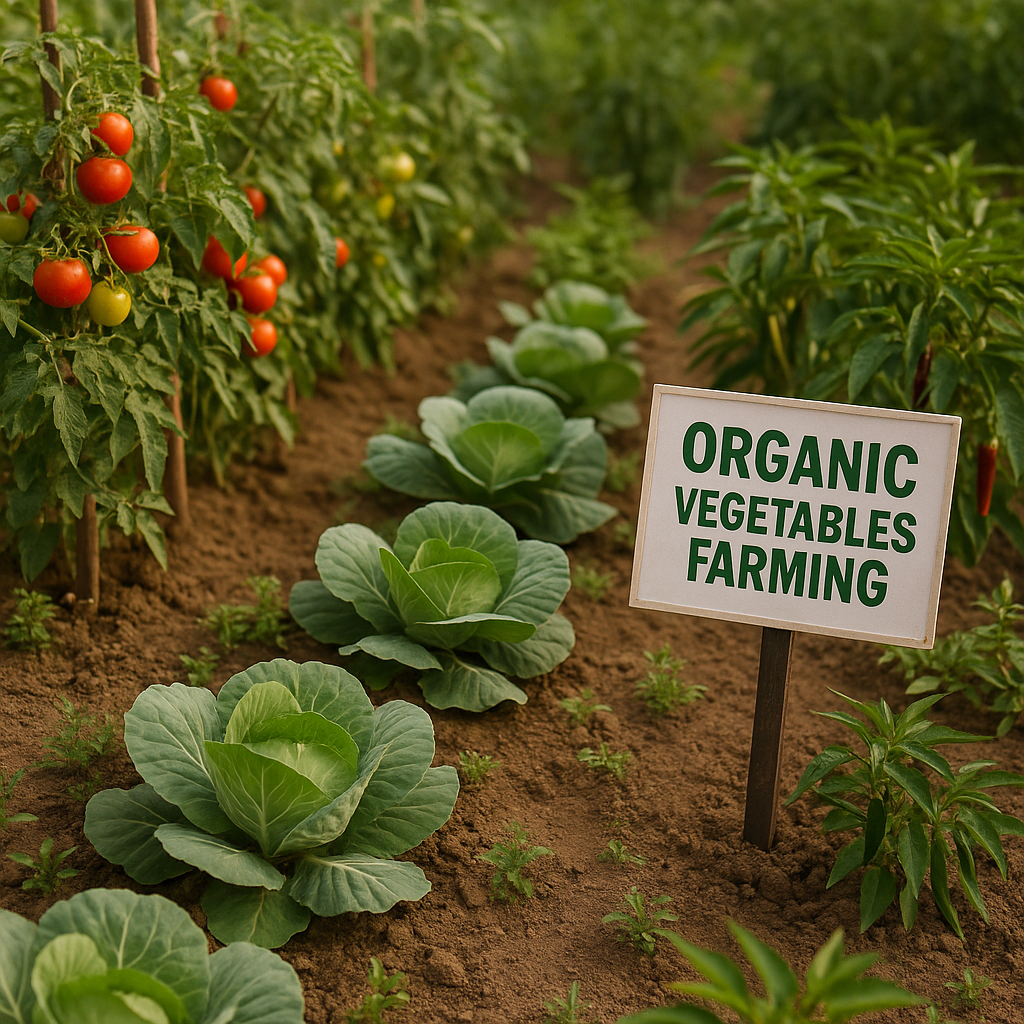
N.B. This photo is not real, it is an AI-generated one.
The Problem and Motivation Behind
“We used to eat vegetables grown with chemicals … these chemicals are causing a lot of diseases that you can see in people” – Chanchal.
Chanchal Kumari (22-year-old) and her team live in a rural community in India where they saw how the use of chemical fertilisers and pesticides by farmers was damaging the soil and harming people’s health. This posed risks to both the environment and the well-being of the community. At the same time, many families living in poverty couldn’t afford clean and healthy vegetables.
They wanted to explore more sustainable farming methods—ones that would not only protect the environment and public health but also create income opportunities for themselves and other families.
The Innovative Solution
“We used to eat vegetables grown with chemicals. But now that we’ve started using organic methods, we see the difference in our health and our crops … We sell our harvest in the market, and what we earn helps us cover our living expenses.” – Chanchal
When Chanchal and her team joined the Youth Innovation and Action Lab, they decided to tackle the problem of unsustainable farming practices that harm both health and the environment. They began by learning about the effects of chemical-based farming and explored organic methods through hands-on workshops. With guidance from Lab mentors, they adjusted their crop choices based on seasonal demand and soil conditions. Soon, they started growing tomatoes, chillies, and other seasonal vegetables using only organic fertilisers.
Their organic vegetables started to gain popularity, and they’ve built trust in the local markets by selling directly to customers. The income generated has allowed each member to support their daily expenses, and for many, it’s their first source of consistent earnings. “I come from a very poor family. But since the time I joined this group and got training, things have changed for the better,” – Chanchal said.
Lessons Learned and Addressing Challenges
“We were told how to farm organically. We were given training, shown which seeds and methods to use. That made all the difference.” – Chanchal
The Youth-led Innovation Action Lab (YIAL) provided the group with training on organic farming techniques, supported them with basic materials, and helped them build the skills needed to market their produce. The group also learned how manage the limited resources they have, and convince local consumers to try organic alternatives.
Reflecting on their experience, Chanchal identified a lesson learned:
- Building trust through direct engagement helps promote organic vegetables in local markets: Chanchal and her team learned that educating and engaging directly with customers was key to convincing them to choose organic vegetables. In a community where most people were used to buying cheaper, chemically grown produce, trust had to be earned through conversation, consistency, and visible results. By selling their vegetables themselves in the local market and explaining the benefits of organic farming, they were able to slowly build a loyal customer base. “We sell directly to customers. We speak with them, explain our methods. That builds trust. And it keeps us going.” Chanchal said.
Next Steps and Future Aspirations
“My dream is to double the farming we are doing now. We want to expand and earn more …. We are happy with what we’ve achieved. But we know we can grow more, help more people, and make organic farming a bigger part of our community.” – Chanchal
Chanchal and her team are now planning to scale up their farming operation. Their vision is not just about profit—it’s about making organic produce more accessible and inspiring other young people to see farming as a dignified, sustainable career.
They intend to increase their crop variety and invest in small-scale food processing equipment to turn their vegetables into packaged goods that can be sold year-round, such as chilli powder and tomato sauce. “We want to buy a machine to make chilli powder and tomato sauce at home, so we can earn more and live better,” – Chanchal explained.